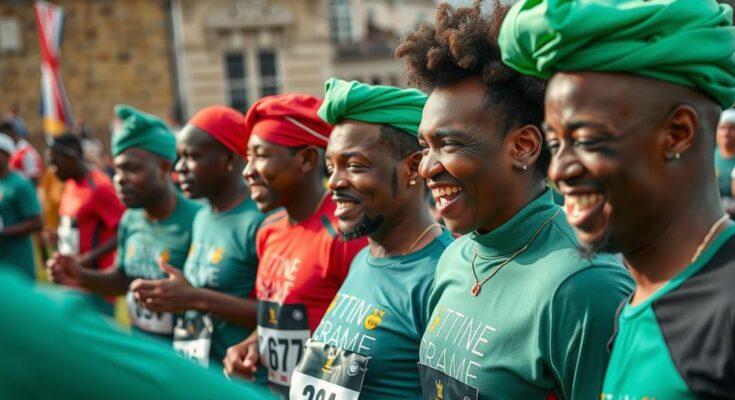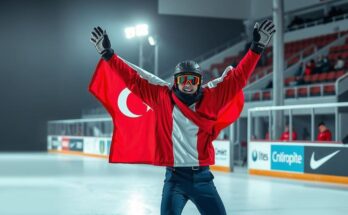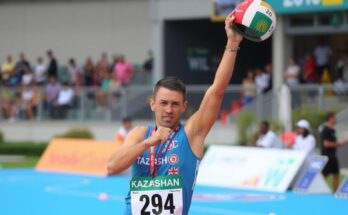The Ozo running club, established by Nigerian Igbos in London, fosters cultural connections and community among its members. With over 300 participants, the club has become a vibrant hub for cultural pride and social engagement, emphasizing unity through traditional chants and shared experiences. While it serves as a space for fitness, its impact extends to reinforcing Igbo identity and promoting inclusivity within the wider community.
On a brisk Saturday morning in London’s iconic Hyde Park, the Ozo running club, comprised mainly of Nigerian Igbos, convenes. Established to foster cultural connections among young Igbos, the club has seen membership surge to over 300 in just a few months, highlighting a rising trend in global social running groups, which have witnessed a 59% increase in participation according to Strava, a leading running app.
The Ozo running club serves as more than a place for exercise; it is a communal hub where members cultivate friendships and deepen cultural ties. Weekly gatherings emit an infectious energy, punctuated by traditional Igbo chants and Afrobeats music, reinforcing the bonds of identity and shared heritage among participants. As co-founder Chibueze Odoemene eloquently expresses, these chants encapsulate themes of unity and love within the Igbo community.
While many members initially seek fitness and friendship, some, like Francesca Ngozi Ezennolim, emphasize the importance of cultivating connections with fellow Igbos. The club serves as a vital resource for overcoming the challenge of finding others from their ethnic background in a diverse environment. In an era where the preservation of Igbo culture faces threats, such as predictions of the extinction of the Igbo language, the club’s success in London reflects a broader resurgence of cultural pride among the diaspora.
In discussions about identity, the founders assert inclusivity, welcoming individuals of all backgrounds to participate in the camaraderie. They emphasize that cultural connection should not breed division but rather foster understanding, inviting others to engage with Igbo heritage. However, the historical complexities associated with the Igbo people, particularly post-Biafran War, still inform contemporary perspectives.
The Ozo running club not only provides a platform for physical activity but also fosters a vibrant community through additional events like outings and cultural celebrations. These initiatives are pivotal in ensuring cultural preservation and representation for the Igbo people amidst a broader landscape dominated by narratives of other Nigerian ethnic groups.
The establishment of the Ozo running club in London reflects a larger movement among Nigerians and, specifically, Igbos in the UK seeking to foster community. With the Igbo population ascending from 8,000 to 11,000 in the last decade, there is a visible need for spaces that celebrate this ethnic identity. The cultural challenges posed by a diaspora experience, coupled with predictions of language extinction, underpin the club’s significance as a venue for cultural solidarity and identity reinforcement among Igbos.
The Ozo running club symbolizes a significant effort by Igbos in the UK to create a sense of belonging and communal identity. Through shared cultural practices and social engagement, the club empowers participants to embrace their heritage while connecting with both Igbo and non-Igbo community members. In navigating issues of representation and cultural pride, the club establishes a model for promoting inclusivity within the framework of ethnic identity.
Original Source: www.bbc.com




